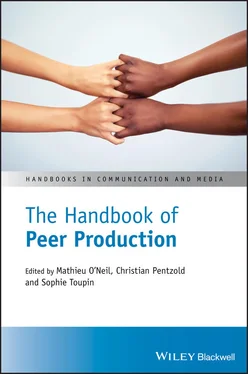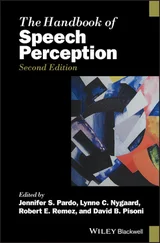4.3 Critiques of Meritocracy in Geek Cultures
In theory, a meritocracy works when individuals have access to the same material and intellectual resources, and thus an equal opportunity from which to develop themselves and display their individual talent. In practice, access to these resources will always be unequal, since it is impossible for everyone to have the same time, financial resources, prior knowledge, and so on.
In particular, Alice Marwick (2013) and Marie Hicks (2016) have each criticized the belief in meritocracy in computer cultures in ways that can be extended to analyzing peer production. Although Marwick’s analysis is focused on startup culture (which in Bourdieu’s terms is a relatively “heteronomous” form of software production opposite the “autonomous” mode of FOSS production), her criticism of the “myth of meritocracy” is likely to be highly relevant to many peer production projects. As she argues, this belief is not only generally false but has disproportionate negative effects on women and people of different races, nationalities, ethnic and economic backgrounds. Beyond more obvious cases of sexism and racism, there will always be issues of unconscious bias that impact judgments of others and their contributions – Marwick notes in her interviews with both male and female Silicon Valley workers, for example, that female entrepreneurs and tech workers are often judged by their appearance rather than technical or business competence (Marwick, 2013, p. 264). The fact that Silicon Valley and workers in the US and European tech industries generally are perceived as favoring progressive politics hardly means that ethnocentrism and erroneous assumptions about others disappear (and rather that this ethnocentrism takes on new forms, see English‐Lueck, 2002). By upholding an ideology of meritocracy, open source communities and Wikipedia are less likely to see how participation and achievement are dependent on being able to fit in with a group that is overwhelmingly male and white. As Ford and Wajcman (2017) note, for example, participation in Wikipedia is often adversarial, unwelcoming to newcomers and suited to people with high degrees of technical skill, all of which favors its existing (mostly male) community and discourages women from taking part. Likewise, Nafus (2012) demonstrates the strong link between the meritocratic ideal in open source communities (present in claims that technical contributions “don’t have gender”) and the hostile attacks women often face in these communities when raising issues of sexism.
Marie Hicks’s work deals with the history of computing, but is equally relevant to the present topic. Hicks (2016) notes how highlighting the contributions of “genius” women in the history of computing – while noble in its intentions – strengthens the belief that success is a function of individual talent, obscuring inequalities of access and the fact that any individual contribution is dependent on a great deal of “hidden work” by countless others. This kind of critique raises the question of whether we should aim to improve ostensibly meritocratic systems favored in peer production and geek culture, or replace them with something else entirely.
In sum, this section has taken a closer look at meritocracy as a core value of FOSS and Wikipedia communities and the wider technological and media fields they operate within. Meritocracy is steeped in a liberal worldview that prizes individual achievement and equal opportunity, and as such we can see in peer production cultures an emphasis on both individual merit as well as the need to assist others. The meritocracies enacted by these communities can be found in crystallized form in various reputation systems and governance structures. However, meritocracy will always remain an ideal, or myth, given that power always ensures inequalities of access and various forms of inequality such as sexism and racism persist even in relatively progressive geek communities.
In Benkler’s famous formulation, the success of peer production is dependent on several factors related to the envisioned product, namely that there is low uncertainty about what constitutes quality and that the product is modular and granular, meaning it can be split into independent parts and allows for both smaller and greater sized contributions. This means the project is suited for decentralized, self‐selecting producers of different levels of expertise and differing levels of commitment). What may go missing in such an economic analysis is that peer production requires more than a set of affordances, rules and procedures, and is arguably dependent on a kind of moral education of its participants. As Pentzold (2011) argues in the context of Wikipedia, participants understand the glue tying their community together not as the bureaucratic governance structure (consisting of wiki software and all of the rules and regulations guiding decision‐making on Wikipedia), but rather as shared values. “[U]sers primarily understand their collective as an ethos‐action community tying community membership not to admission procedures but to the personal acceptance of a set of moral obligations and rules of conduct” (Pentzold, 2011, p. 716). Logically, such personal acceptance will arise not just from existing preferences and previously held beliefs, but also through processes of socialization and education. An example of such moral education in service of peer production is Debian’s New Member Protocol, a form of apprenticeship that also requires an individual essay presenting one’s views on the value of open source (Coleman, 2013, p. 124)
The moral education involved in peer production will be geared towards several shared values, obligations, and rules of conduct. Perhaps most importantly, however, is instilling a disposition of openness, understood as tendencies toward humility and empathy that we associate with an “open mind.” Here it is important to see that openness is not a straightforward concept, and can refer to different things including the free access of information and technology (as in “open source code”), or a liberal political philosophy (Tkacz, 2014). The “open‐mindedness” I focus on here is a crucial part of what Reagle defines as the larger meaning of openness in Wikipedia and similar communities, namely as “an accessible and flexible type of collaboration whose result may be widely shared ” (Reagle, 2012, p. 75, emphasis in original). As Reagle notes, Wikipedia’s famous policy of “neutral point of view” (NPOV) is often misunderstood as a kind of positivist notion of truth. However, in practice it is pursued “rather as a stance of dispassionate open‐mindedness” (Reagle, 2012, p. 56). In other words, neutrality and openness are articulated as an attitude or disposition.
On Wikipedia, such openness‐as‐disposition is encoded and enacted in different ways. Perhaps most important among these is the colloquial Wikipedia norm of “assuming good faith” (“Wikipedia,” 2019). Assuming good faith means taking opposing views seriously and a willingness to entertain the view that one’s own perspective is incomplete and flawed. Although prolonged flame wars get the most attention, as Reagle points out these are outweighed by civil interactions where compromise is sought and good faith is assumed on all sides. A related practice that Wikipedia encourages is “writing for the opponent” (“Wikipedia,” 2018). This challenges editors to spend more time writing and polishing points of view they themselves do not hold. Here, the guideline can be read in two ways: on the one hand it encourages openness through exposure to difference; on the other it suggests this is also the best way to convince others of your own arguments (which of course somewhat violates the principle of good faith). Regardless, it remains a practice that requires some degree of empathy and respect (Reagle, 2012, p. 58).
Читать дальше


![О Генри - Справочник Гименея [The Handbook of Hymen]](/books/407356/o-genri-spravochnik-gimeneya-the-handbook-of-hymen-thumb.webp)









